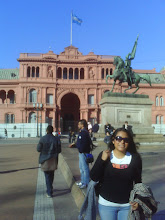Abstract:
‘Popular culture’ is a broad term, especially if the meaning of ‘culture’ is understood as referring to “[…] whatever is distinctive about the ‘way of life’ of a people, community, nation or social group.” (Hall 1997: 2).
To use the “mass aspect” as a defining characteristic of popular culture is even more problematic in the African context where, as Newell (2002: 4) notes, consumption patterns with regard to some genres are such that for example also popular books are consumed only by a small minority of the population. The liberalisation of radio and TV helped facilitate the emergence of new forms of popular culture which did not have space on the usually state-controlled media. HipHop-inspired music which emerged in many African countries in the 1990s is a case in point here.
While it is certainly true that urban areas are largely the sites of popular creativities - especially those which succeed in reaching a broader audience - the reception of popular culture can hardly be limited to the urban sphere. With technologies spreading, the gap between rural and urban is decreasing, an observation that holds true at least in terms of the consumption of popular music. (Fabian 1997 [1978]: 18, 25)
A positive definition could probably point at the relative openness of popular culture - openness in the sense that entry barriers are relatively low and access to it not overtly institutionalized. (cf. Barber 1987: 43.
“Young people and particularly young women make use of the popular culture discourses. The discursive spaces opened up by the narratives are relatively free from the barriers which otherwise keep out women and the poor. In that sense the new media contribute significantly to the establishment of a democratic public sphere.”
Apart from looking at how popular culture is used to express political views, it is also necessary to look at the role of the state in the politics of popular culture (Street 2001: 302). In this context the practice of transforming ‘traditional’ songs into ‘propaganda’ songs was often used - a practice which is however far from outdated in contemporary Africa; and it is certainly not a phenomenon limited to ‘traditional’ songs but also occurring with songs that can be categorised as ‘popular’.

No hay comentarios:
Publicar un comentario